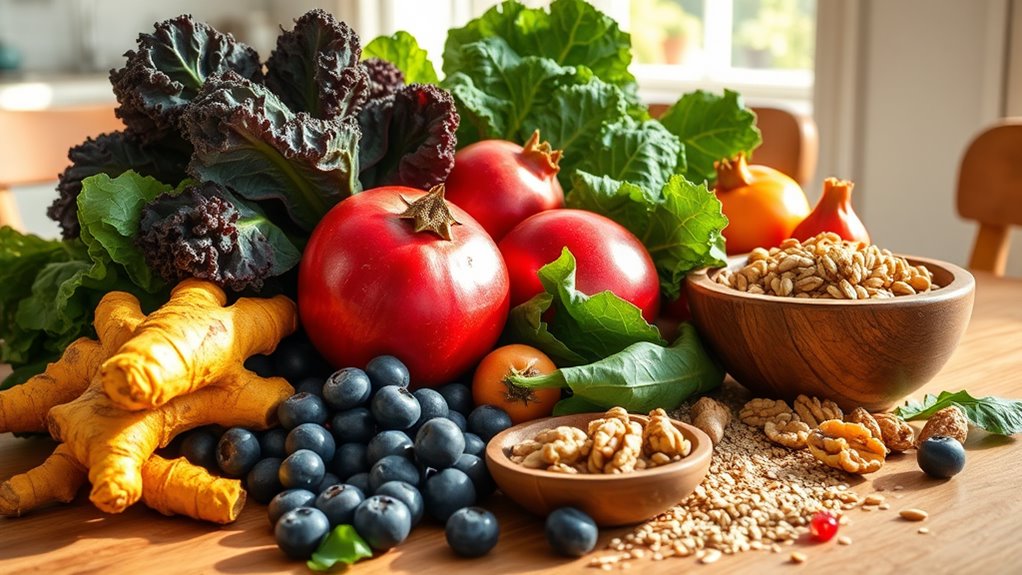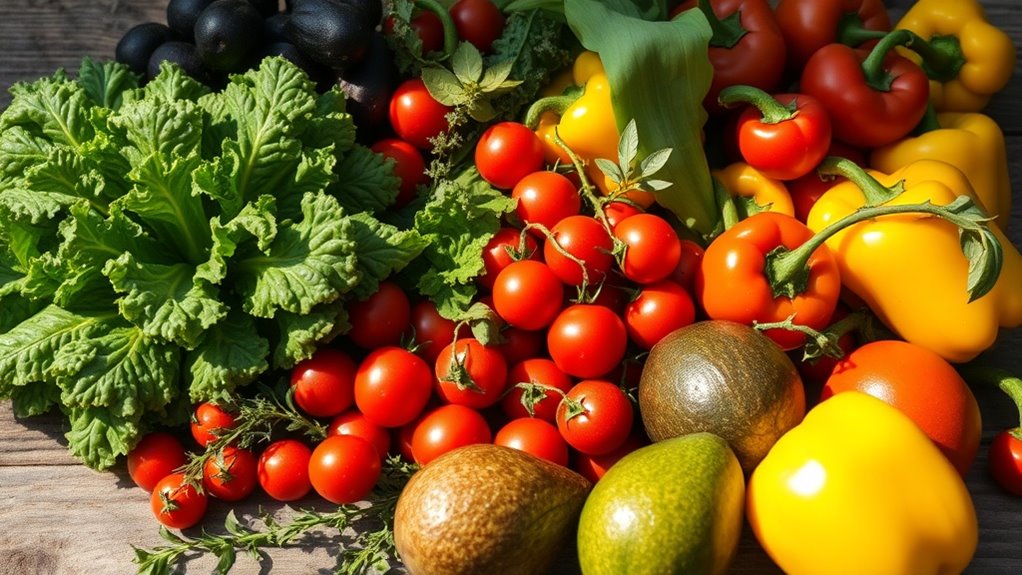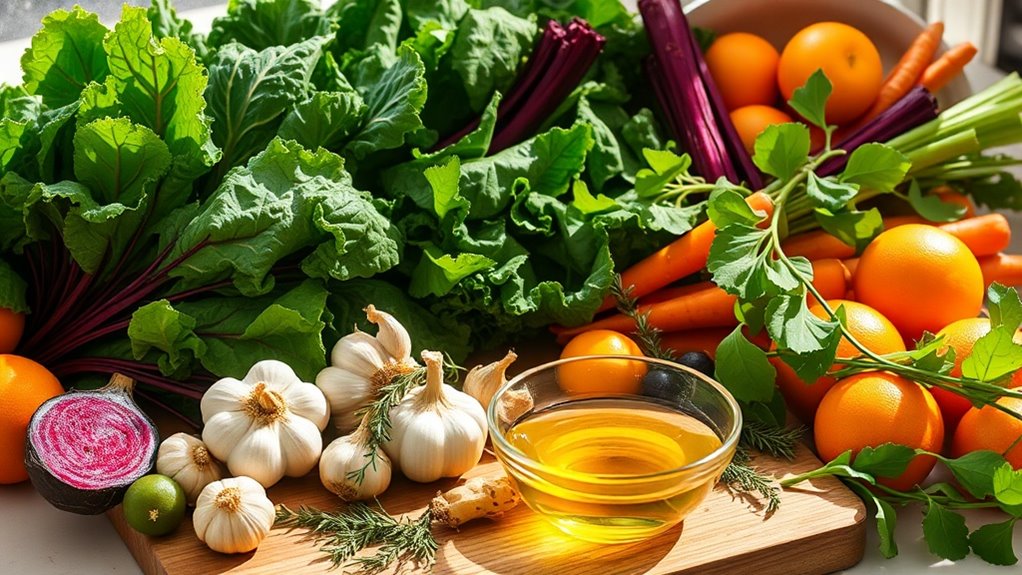Healing With Food- The Anti-Inflammatory Staples You Need
To heal with food, focus on anti-inflammatory staples that can transform your health. Incorporate nutrient-dense fruits like berries and leafy greens that combat oxidative stress. Include healthy fats from sources like olive oil and fatty fish for their heart and brain benefits. Don’t forget whole grains such as oatmeal and quinoa, along with powerful spices like turmeric and ginger to amplify your meals. There’s so much more to explore in creating a balanced, anti-inflammatory diet.
Understanding Inflammation and Its Effects on Health
When it comes to your health, understanding inflammation is crucial, as it plays a significant role in many chronic diseases.
Chronic inflammation can lead to issues like heart disease and diabetes.
Integrating healing anti-inflammatory foods, such as fatty fish, nuts, and whole grains, into your diet can help mitigate this inflammation, promoting overall wellness and reducing your risk of developing serious health conditions. Adding foods rich in omega-3s like fatty fish can further enhance your body’s ability to combat inflammation.
Top Anti-Inflammatory Fruits and Vegetables
What if I told you that incorporating a variety of colorful fruits and vegetables into your diet can significantly reduce inflammation?
These nutrient-dense options not only boost your immune system but also combat oxidative stress.
Consider adding these top anti-inflammatory fruits and vegetables to your meals:
- Berries (blueberries, strawberries)
- Leafy greens (spinach, kale)
- Tomatoes
- Sweet potatoes
- Avocados
In addition to these, including fatty fish in your diet can further enhance your anti-inflammatory efforts and improve overall health.
The Role of Healthy Fats in Reducing Inflammation
Healthy fats play a crucial role in reducing inflammation, as they help maintain the body’s overall balance and support cellular health.
Incorporating sources like olive oil, avocados, and fatty fish can provide essential omega-3 fatty acids and monounsaturated fats.
These nutrients combat inflammatory markers, promote heart health, and enhance brain function, making them vital in an anti-inflammatory diet. Furthermore, consuming anti-inflammatory foods can significantly contribute to overall wellness and help manage chronic inflammation.
Incorporating Whole Grains Into Your Diet
Although many people associate grains with empty calories, incorporating whole grains into your diet can significantly boost your health.
Whole grains provide essential nutrients and can reduce inflammation. Here are some easy ways to include them:
- Oatmeal for breakfast
- Quinoa in salads
- Brown rice as a side
- Whole grain bread for sandwiches
- Barley in soups
Make these simple swaps for better health! Additionally, whole grains are high in fiber, which regulates digestion and promotes satiety.
Powerful Spices and Herbs for Healing
As you explore natural ways to enhance your well-being, don’t overlook the healing powers of spices and herbs. Incorporating these flavorful ingredients can help reduce inflammation and promote overall health. Here are some key spices and herbs to consider:
| Spice/Herb | Benefits |
|---|---|
| Turmeric | Anti-inflammatory, antioxidant |
| Ginger | Reduces nausea, combats inflammation |
| Garlic | Boosts immunity, lowers blood pressure |
| Cinnamon | Regulates blood sugar, anti-inflammatory |
| Cayenne | Enhances metabolism, pain relief |
Additionally, turmeric’s anti-inflammatory properties can ease discomfort and improve your overall quality of life.
Creating Balanced Meals With Anti-Inflammatory Ingredients
When you focus on creating balanced meals with anti-inflammatory ingredients, you’ll not only nourish your body but also support your overall health.
Aim to include a variety of components for maximum benefits.
Consider incorporating:
- Leafy greens (e.g., spinach, kale)
- Colorful berries (e.g., blueberries, strawberries)
- Healthy fats (e.g., avocados, olive oil)
- Lean proteins (e.g., chicken, legumes)
- Whole grains (e.g., quinoa, brown rice)
Incorporating fermented foods into your meals can further enhance your gut health and contribute to a balanced diet.




